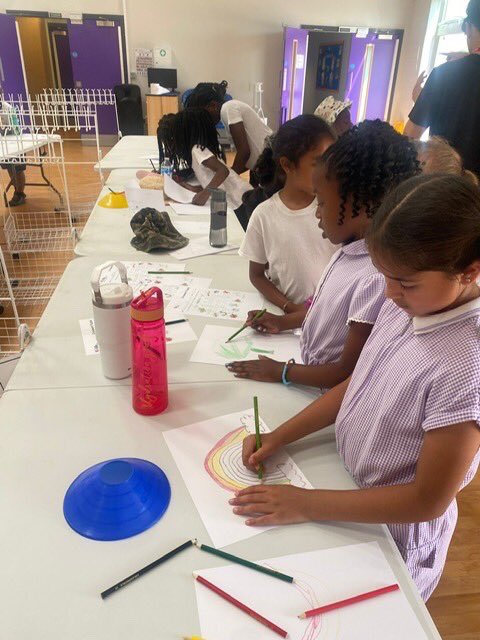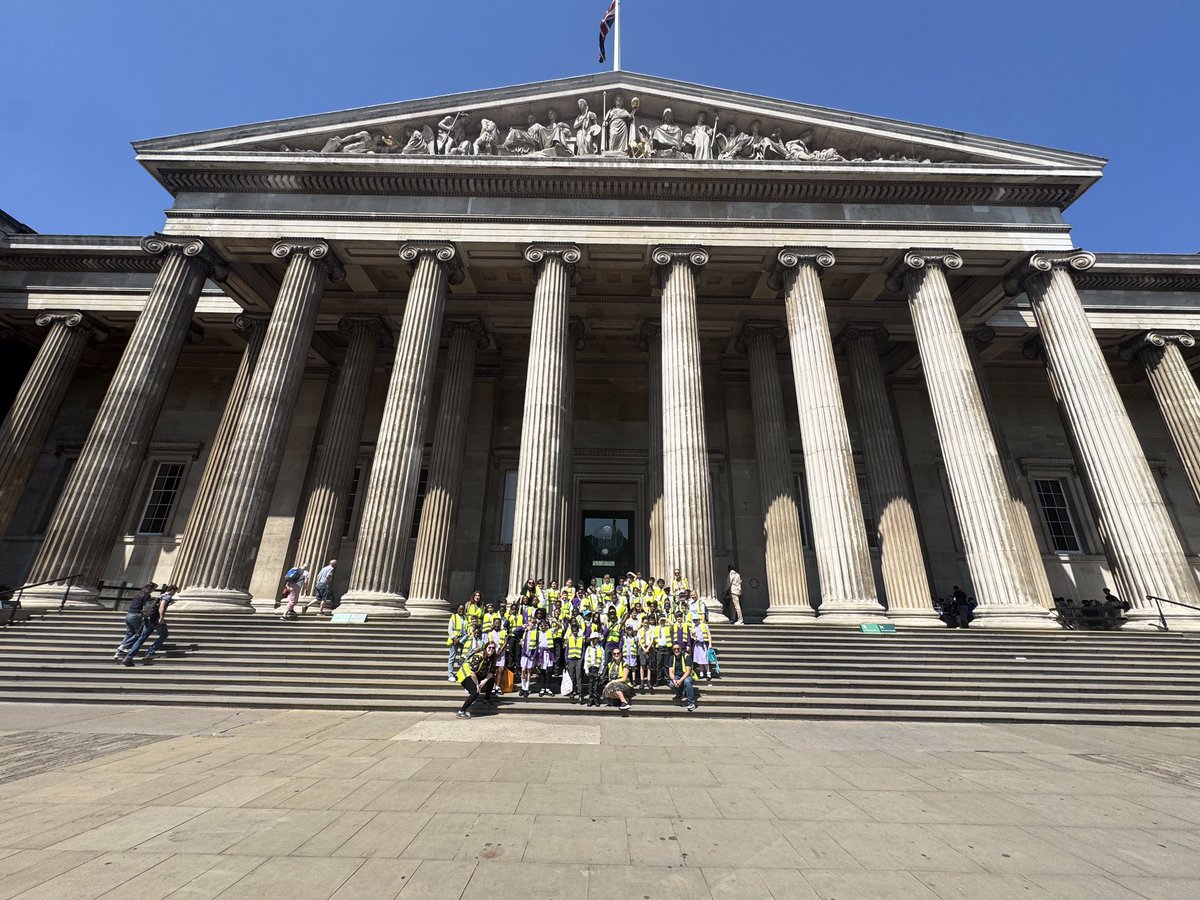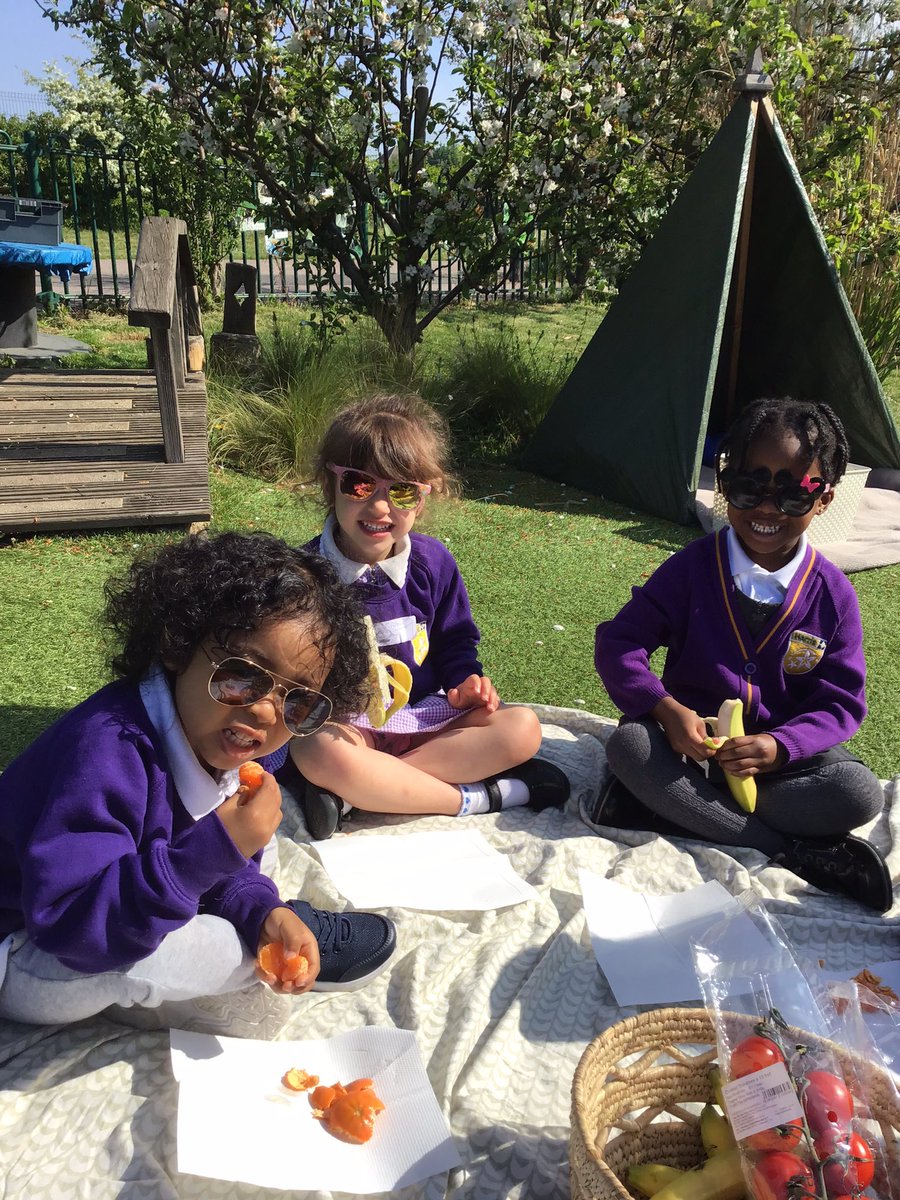
18/11/25
A group of KS2 pupils took part in the Bebras Challenge — a national computing competition that puts problem-solving and logical thinking to the test. They represented our school brilliantly!
follow us @HPAMA2015

07/11/25
The Nursery children were very excited to receive a letter, (with lots of stamps!) from a Kindergarten class in Poland, the children are slightly older & their class is called Bees. The children sent us drawings of bees & butterflies and a lovely letter telling us all about them.
follow us @HPAMA2015

04/11/25
Amazing news! 🎉 Our Mayflower Computing Club has been awarded the Bronze STEM Club Quality Mark by STEM Learning UK! The assessor said everyone in the school should be proud — and we really are! Our pupils have shown fantastic creativity, teamwork, and confidence in STEM. 💻✨
follow us @HPAMA2015


01/07/25
How we keep cool at Mayflower when it is 33 degrees! The Cool Zone - drawing & colouring in the hall. Hydration Station - keeping the water bottles topped up and ice lollies for everyone!
follow us @HPAMA2015

30/06/25
Ahead of their residential in Yorkshire, the Year 6 children all received their leavers hoodies! They couldn’t wait to put them on! Thank you to Miss Williams for organising this wonderful memento 💜
follow us @HPAMA2015

30/06/25
We are so lucky to have several different fruit trees in our Nursery garden. All the glorious sunshine has ripened the cherries and the children enjoyed picking them and taking a bag of cherries to eat at home🍒
follow us @HPAMA2015

23/06/25
Careers in Tech – Part 3 Smashing Stereotypes. In the afternoon, the girls met professionals from across the tech world. It was eye-opening, confidence-building, and a lot of fun. The big message? Tech is for everyone — and the girls saw that for themselves.
follow us @HPAMA2015

19/06/25
Careers in Tech - Part 2 App Design Challenge. The girls worked in teams to tackle real world sustainability problems. They brainstormed, designed app storyboards, and pitched their ideas to industry experts.
follow us @HPAMA2015

19/06/25
Careers in Tech - Part 1 The Journey & Arrival. A group of year 5 and 6 girls attended the TCS office in London through a STEM programme. The TCS building was incredible, with stunning views and such a warm welcome.
follow us @HPAMA2015

11/06/25
The children in Nursery, Reception & Year 1 had a visit from a Dental Nurse. She spoke to the children about keeping our teeth clean and healthy and why it is important to visit the dentist. The children then had a go at cleaning Dexter’s teeth using a very large toothbrush!
follow us @HPAMA2015

04/06/25
👏 Clap and Code! Our KS2 children have been learning how to use Micro:bits to detect sound. They created a fun project where the Micro:bit lights up when you clap! It was a great way to learn about sound sensors and how we can use code to control what happens. Video
follow us @HPAMA2015

02/06/25
Monday Club Night - Year 6 Steel Pan club performing Katy Perry ROAR 🦁 👏🏻👏🏻👏🏻 Video
follow us @HPAMA2015

14/05/25
In History this term, the topic for Year 4 is ‘How can we learn about the Kingdom of Benin?’. To broaden the horizon for our children, we had a school trip to the British Museum, here the children were able to further their understanding and learning of the Kingdom of Benin.
follow us @HPAMA2015

12/05/25
It has been a very egg-citing day in EYFS - the arrival of 30 eggs, which have been placed in incubators in Nursery and Reception. Hopefully by the end of the week we will have 30 very cute fluffy chicks 🐣
follow us @HPAMA2015

09/05/25
VE Day celebrations at HPAMA 🇬🇧 Every class created celebratory window displays, children and staff came to school dressed in red, white and blue and had traditional fish and chips for lunch all whilst learning about the history of VE Day.
follow us @HPAMA2015

07/05/25
Thank you to Mrs Hollington and the parents that attended this mornings Garden Workshop. We hope you enjoyed spending time in our garden, in the lovely spring sunshine and learnt some interesting gardening facts and tips 🪴🌸🌼
follow us @HPAMA2015

06/05/25
We had a visit from a very well known author called Lisa Williamson. She spoke to the children in years 3-6 about her journey to becoming an author, she read aloud to the children & discussed what inspired her to write the books. Some children received a signed copy of her book!
follow us @HPAMA2015

02/05/25
Reception - This term in art we are focussing on the artwork of American sculptor Augusta Savage. The children have had the opportunity to create their own sculptures using clay and spoke about what methods they used for creating different marks, impressions and shapes.
follow us @HPAMA2015

01/05/25
Butterflies class are making the most of the lovely sunny weather this week and spending a lot of time in the outdoor area. The water play has been extremely popular, as well as watering the flowers, herbs and vegetables and enjoying snack time as a picnic!
follow us @HPAMA2015




